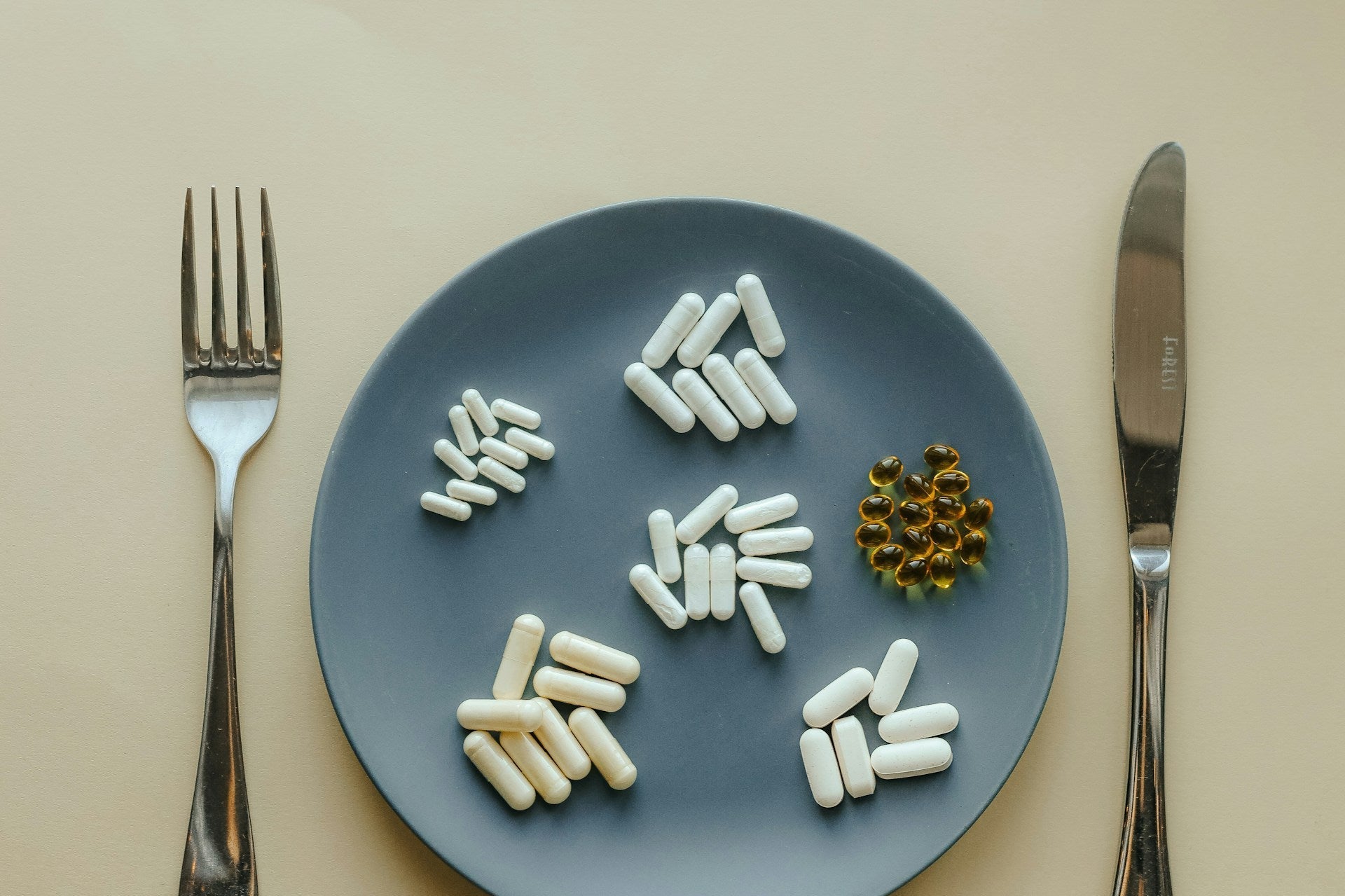
With health and wellness shelves bursting with everything from adaptogens to algae, it’s easy to feel overwhelmed by the world of supplements. So which ones are actually worth taking—and which can you skip? We’ve looked at the evidence, drawing on insights from trusted voices like Professor Tim Spector, Drs Chris and Xand van Tulleken, and leading nutritional scientists to cut through the noise.
Here are the supplements most supported by research—and those that could be beneficial depending on your personal lifestyle, diet, and health status.
1. Vitamin D
- Why it matters: In the UK, sunlight exposure is too low between October and March to produce enough vitamin D. It’s essential for immune function, bone health, mood regulation, and hormone balance.
- What the evidence says: The NHS recommends everyone take 10 micrograms (400 IU) per day in autumn and winter. Tim Spector agrees it's one of the few supplements worth taking for most people.
- Top tip: Choose D3 (cholecalciferol), ideally paired with vitamin K2 to support calcium absorption and bone health.
2. Omega-3 (EPA & DHA)
- Why it matters: These essential fatty acids support brain health, heart function, and reduce inflammation.
- Who needs it: If you don’t eat 2–3 portions of oily fish per week (e.g., salmon, mackerel, sardines), you’re likely to be deficient.
- What the evidence says: Multiple studies link omega-3 intake with lower risk of cardiovascular disease, improved cognitive function, and even mood stabilisation.
- Top tip: Look for a supplement that contains both EPA and DHA in triglyceride form for better absorption.
3. Magnesium
- Why it matters: Magnesium supports over 300 enzymatic processes, including those involved in sleep, stress regulation, muscle function, blood sugar control, and hormone production.
- Who might need it: Anyone under chronic stress, those with sleep issues, perimenopausal symptoms, or low intake of leafy greens and nuts.
- What the evidence says: Studies consistently show that many people consume less than the recommended daily intake. Dr Rangan Chatterjee and other functional practitioners regularly highlight magnesium’s role in nervous system regulation and PMS relief.
- Top tip: Choose magnesium glycinate for stress and sleep, or magnesium citrate for constipation. Avoid magnesium oxide due to poor absorption.
4. Probiotics
- Why it matters: A healthy gut microbiome is linked to digestion, immunity, skin health, and even mental health.
- What Tim Spector says: He’s cautious about probiotic supplements and recommends focusing on diversity in your diet first (fermented foods, fibre, polyphenols). However, specific strains can be useful during or after antibiotics or for managing conditions like IBS.
- What the evidence says: Strain-specific probiotics can help, but they’re not one-size-fits-all.
- Top tip: Add fermented foods like kefir, sauerkraut, and live yoghurt to your routine for a natural boost.
5. B12 (for vegans and older adults)
- Why it matters: Vitamin B12 is essential for red blood cell production, energy, and nervous system function
- Who needs it: Vegans, vegetarians, and those over 50 (absorption declines with age).
- What the evidence says: A deficiency can cause fatigue, memory problems, and even nerve damage.
- Top tip: Look for methylcobalamin, the most bioavailable form.
6. Iron (if tested and confirmed low)
- Why it matters: Iron is vital for oxygen transport, energy, and cognitive function.
- Who needs it: Menstruating women, pregnant women, and those with diagnosed deficiency.
- What the evidence says: Supplementation should only follow a blood test—excess iron can be harmful.
- Top tip: Iron bisglycinate is gentler on the gut than traditional forms like ferrous sulphate.
So, what should you take?
- Definitely:
- Vitamin D (especially in winter)
- Magnesium (especially for stress, sleep, or midlife women)
- Omega-3 (if you don’t eat oily fish)
- Situationally:
- B12 (for vegans, vegetarians, or over 50s)
- Iron (if blood-tested and low)
- Probiotics (specific use or after antibiotics)
The bottom line:
A well-balanced, fibre-rich, minimally processed diet is the foundation of good health. As Tim Spector puts it, “Food is your best medicine.” But for many of us—due to modern lifestyles, poor soil quality, stress, or restrictive diets—**a few well-chosen supplements can bridge the gap.
Before starting anything new, it’s wise to consult your GP, a registered nutritionist, or functional health practitioner—especially if you’re pregnant, have a health condition, or take medications.
by Natali Hordiiuk on Unsplash

Comments (0)
Back to News